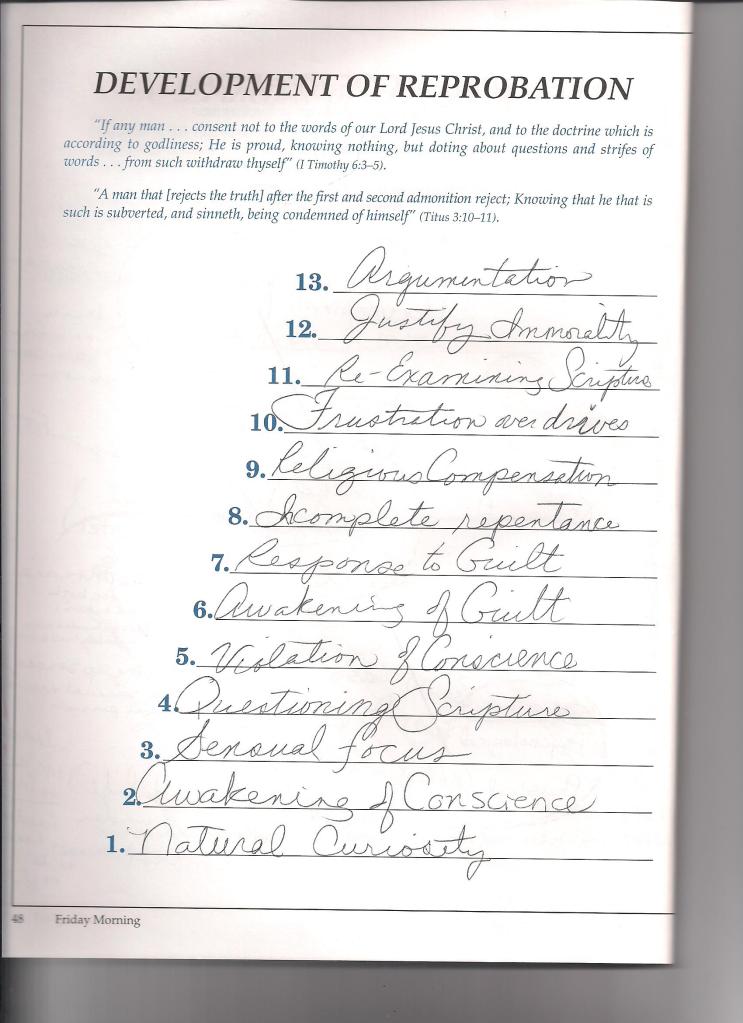
First let me say that it’s cool beans to see the words “Andy Serkis” at the top of the credits. ‘Bout time. Now, on to the bad parts.
There’s nothing wrong with this movie but the script, and what follows is all spoiler, so please stop reading immediately if you’re going to see Dawn of the Planet of the Apes. I’m about to ruin it for you, and I apologize for that. Stop reading. Go to the movie, then come back and read this.
I looked forward to this movie for three years, same as you did. I wanted it to be amazing. Sadly, the scriptwriters went all nutty on us, but you can’t really blame them. They were tasked with making a tense, edge-of-your-seat story out of an isolated community of law-abiding, family-oriented Apes who just want to live by themselves in the woods and bow down to their benevolent Caesar. In order to do that, they had to bring in some very stupid Humans.
It’s been ten years since “simian flu” struck down 499 out of 500 of those who caught it, leaving (obviously) 1/500 of the world’s population, assuming every person on earth was exposed to the virus. Given the isolation of some communities, I’m not sure this is a reasonable assumption, but even if it is, something that is certain is that the one-in-five-hundred who survived in San Francisco were not high scorers on the SAT, and by SAT, I mean the Stanford Achievement Test. Dummies! They stay within spitting distance of Muir Woods when there’s perfectly good Sacramento a hundred miles away, perfectly good Vallejo less than half that distance (plus it has a Six Flags, and with everyone dead, no more long lines). More on the moving-away idea later.
Let’s talk about the Apes’ insistence on using American Sign Language, when they can speak. What’s up with that? We have to read yellow subtitles for endless minutes to understand the Apes’ conversation, when–darn it–ten years have passed and Maurice (the orangutan) is teaching school. He’s literally teaching reading to the youngsters, so maybe, just maybe, he would have taught some classes on speaking, though in Usual World, it’s parents who teach their children to speak.
Back to the craziness of the Humans. The population of San Francisco currently is around 837,000. Divide by 500 and you get 1,674. There don’t seem to be that many, but that may be because the smart ones took a fleet of Hertz Rental Trucks, backed them up to Wal-Mart, loaded up with supplies, and headed over to the Central Valley to get started making a life away from the loonies who stayed in town and let it overgrow with weeds. What is wrong with these people? Almost two-thousand people and they can’t set up a working township? The Pilgrims would hang their heads in shame at this level of helplessness, and they weren’t the smartest kids in class, but don’t get me started.
Talk about helplessness, these people have waited ten years to try to contact other survivor communities. Give me a break. In ten years, no one made a call to LA or drove down, looting Starbucks for trentas along the way? No one phoned home? Called the one remaining Member of Congress? Got ahold of Anderson Cooper? (Anderson would totally survive.) Failing phones, no one in ten years has established so much as a telegraph? Frisco is chock-a-block with high rises, luxury homes, townhouses, stores, and no one has worked out that there may be generators around? No one raided Walgreens for double As? These people have dissolved into helpless “Please, Leader, tell me what to do” instead of using their combined brain power to establish a working city.
It’s as though the scriptwriters want us to believe that when 499 out of 500 people die, there are no cars left either. Dystopia descends, when, really, everyone would be living in luxury. Everyone has his own building! Closets full of clothes! Fleets of cars! It’s as though the Rapture happened without the Tribulation following. Think what you could do with the stuff of 499 other people.
Would you really stay squashed downtown bowing down to a guy who doesn’t have the brains to leave? You would not. You would go to Malibu. You might leave the nice Apes a note: “If you don’t mind, we’ll take everything south of Fresno.” The Apes would think, “Agreed. Who wants Fresno?”
Back to math. That same little “divide by 500” effort reveals that the United States alone (I used 300 million) would have a population of 600,000. No small potatoes, and speaking of potatoes, how ’bout taking that Ryder Truck out to Idaho and getting busy? Why stay in the crowded downtown next door to your natural enemies? The world population is around 7 billion, right? Divide by 500 and you get 14 million. This is a lot of people to work with, and even if most of the people who survived in San Francisco aren’t working with a full deck–blame the super-easily-available marijuana in a post-virus Frisco–other populations might have survived with some people who are running on full tanks. Some of them would have the sense to fly airplanes around and see if anyone’s home.
Now, on to the story: the Humans of San Francisco need electrical power. For whatever reason, they let the power plants die, there are no more electricians, and the Army Corps of Engineers is disbanded. The only way they can make electricity is to go exactly into Muir Woods and try to get some water power plant thing place (whatever) going. There’s no way to, say, go to San Jose or Oakland. The only possible way to get power is to go to Caesar’s hideout. (Thomas Edison himself would throw a tantrum here. He made electricity out of almost nothing, and these people let a decade go by without dealing. Obviously, the smart people shook their heads and left, the only question being, “north or south on the Five?” with the “duh” answer being, “Hippies, head north to Eugene, all other Californians go south, all transplants hit Highway 80 and get yourself out to New York or Washington.” You need to remember that the only smarty-pants Apes on the Planet are the few who live in Muir Woods. It is going to take them a very long time to get more than a little forest community going. You’re completely safe once you cross the Sierras.)
The Apes, by the way, are minding their own business. They are bothering no one. They aren’t interested in taking over San Francisco, and everything would have been fine, had the IQ-challenged Humans managed to figure out to stay away from them. My youngest son said, “But, Mom, they had to have a story.” With which I agree, but couldn’t it have been something better?
Isn’t it even sort of un-American to be all, “Oh no. I don’t have electricity. I’m going to have to lay down and die!” I thought we were pioneers. I thought we were survivors. The Founders defeated England without enough electricity to zap Ben Franklin’s kite, after all. I thought we would have the sense to get the heck out of Dodge and go someplace that does have working power. Is there not a cruise ship in the harbor? Is there a person who can pilot it to Honolulu? Get me a deck chair; I’m going. You don’t need electricity to live North Shore.
The good news is, after Caesar & Co. deal with all these sixteen hundred brainless Californians, the other [14,000,000 – 1,674] Humans who are left in the rest of the world can go on living their uninterrupted lives, rebuilding, repopulating, and (with any luck) co-existing with the Apes up in NorCal, who, frankly, don’t look all that interested in living in houses or moving to NYC to get a look at the Statue of Liberty. They don’t even wear clothes. Plus, they’re nice, on the whole. They only get mad at the Humans, when the Humans shoot them, which seems normal, right?
So blame it on the San Franciscans. They don’t have the brains to tap into the windmill generators. They don’t have the brains to move out of the big city. They don’t have the brains to drive down to Los Angeles. Or better, Chicago. No Ape wants to live in Chicago.
Me, I’d be down at Huntington Beach with my family–or whoever I scraped together after everyone else died–catching some waves and enjoying the uncrowded beaches. Maybe live at Disneyland and bike over to the beach occasionally. There would be enough food in the SoCal stores, warehouses, and shipping containers to last the Five Hundredths all their days, enough generators, enough stored gasoline. There’s enough cropland in the Central Valley to feed the world, and, trust me, in such a situation, the survivors would be farming it.
We knew Koba would turn out to be bad. Anyone who has Stalin’s nickname is going to be trouble. But I felt sorry for him. As Caesar says (or signs, I forget), the Humans made Koba hateful. Totally understandable then that Koba would go nuts when Humans come in shooting.
How could the plot have been better? Maybe make the Apes more aggressive? Pit Koba against Caesar from the beginning and make it a turf war in which the Apes are forced to go into the City to get weapons, whereupon they encounter unsuspecting, terrified, and heavily armed Humans? Have a nuclear explosion (from abandoned, core-melting nuclear plants) or other disaster that makes a bunch of Apes sick, so they have to go into the City to find medicine? Or maybe they burst into the hospital and demand the surgeons get to it? I don’t know. But there had to have been a better idea than the one they settled on, which was: We can’t live without electricity, so let’s go shoot the Apes.
Seems like, also, the Apes would have gone back to Gen-Sys for the rest of the ALZ-113 so they could keep it on hand to intellectually liberate the Apes of the world. Then all they would have needed to do was head over to SFO, commandeer a 747, hold guns to the heads of various pilots (or learned to fly themselves), and made a sort of missionary venture out of bringing freedom to Apes the world over. Along the way, maybe they crash land and have to work with Humans to survive together.
The end of this movie is identical to the end of the James Franco movie, which was far better. All the Apes are bowing down to Caesar, acknowledging his overlordship. We’re back where we started, except there are fewer humans, and San Francisco is more beat up. I hope they make a third movie, and I hope it has a much better plot.
Obviously, there’s going to be a giant Simian vs. Homo Sapiens war, but I don’t see why that has to be. The Apes are peaceful and just want to be left alone. There needs to be a better plot than just another series of pitched battles where the Apes have the advantage because they operate in three dimensions, and the humans have the advantage of having more rocket launchers. Please, please give us something a little more cerebral.
Rotten Tomatoes is ga-ga over Dawn, way up in the nineties, and I don’t blame them. It’s a good movie. I liked it all the way through. Then the lights came on and my brain restarted.
(There’s also a teeny little glitch where Malcolm [Jason Clarke] yells, “No, Caesar, no!” having not been told Caesar’s name before that. Caesar turns to him, and I wanted him to say, “How did you know my name?” which would have been followed by some explanation of his friendship with Will [James Franco], Caesar’s “owner” in Rise of the Planet of the Apes. That could have been something. As it is, it’s just a glitch.)
Caesar’s son is intriguing. I have hopes for him in the third installment. I hope they don’t kill off Caesar in order for Junior to take over. I want Caesar to live out his days in peace, maybe retire in Boca.
All the action and actors and filmmaking in general is great. It’s just the script that’s all wrong. But you should see it anyway, because Caesar and family are so great. And Koba is great–I wanted better for him. And the nice Humans are great. Malcom’s son is adorable; I hope he’s important in the next movie. The possibilities are endless. I hope they pick the rights ones.















